Finally, the war started. Both the Ukrainian government and Western countries ignored Russia's warnings about Ukraine's joining the NATO, and Russian President Vladimir Putin ordered an attack on Ukraine.
The ongoing war could be studied from different angles. One has to answer different questions as to why this war started in the first place, the goals of Europe and the role they have defined for themselves in the conflict; the United States' goal in encouraging Russia and Ukraine to go to war, Russia's goals, etc. Anyway, one important question stands out that is what implications the war will have for West Asia and North Africa regions?
The reality is that the Ukraine crisis has massive impact on developments in West Asia. Economically, with the increase in energy prices, given the fact that Russia is one of the largest oil exporters in the world and now that is sanctioned, the world economy, which is just recovering from the Covid-19 pandemic, cannot take in another shock. Middle East oil is becoming more important in the global oil market. Iran's oil has been largely absent from the world's oil market under the US sanctions, and countries like Saudi Arabia have made up for the deficit caused by Iran's absence. The question is, will Saudi Arabia and other oil-rich countries in the region be able to replace Russian oil? Therefore, they should increase their oil production and exports and in the meantime, they will have to curb the rising price at the West's request.
Saudi Arabia is not in a good position to make up for Russia’s absence from the oil market because of its costly involvement in regional crises, such as supporting terrorists in Syria, Lebanon and Iraq, as well as the 7-year war on Yemen. Riyadh is witnessing a tremendous budget deficit, however, a sharp rise in oil prices helps it when it comes to the shortage of revenues. Besides, increasing production requires investment in oil production infrastructure, which under the current circumstance it seems unlikely that Saudi Arabia will be able to attract more investment in its oil sector. The Yemeni missile and drone strikes on Saudi oil facilities have proven costly for the Saudi economy and has made an increase in oil production unlikely. Therefore, one cannot expect that Saudi Arabia would be able to play a role to make up for Russia’s removal from the oil market in response to United States and the West’s request. Other Persian Gulf Arab regimes are no exception.
Accordingly, the world must prepare itself for a hike in energy prices, which brings the question to mind whether the world economy can tolerate this. Another option is to approach Iran which creates an opportunity for Iranian oil to reenter world markets. Curbing the rising energy prices is possible if the sanctions on Iran within the framework of the Vienna talks are lifted or the West can go another way and ignore the urgency. In both cases, West would be withdrawing from confronting Iran and that would mean an increase in Iran's economic power and influence in the region and the world would be inevitable.
Russia's attack on Ukraine and the Western inaction, despite all the promises they had made to the Ukrainian government, also send an important message to the regional government in West Asia that relying on the West for their security proved to be wrong. The West most likely will abandon them if they are attacked. Therefore, it seems that they should reconsider their coalitions and alliances. Especially since the United States has been forced to leave the region largely due to the Iran-backed Axis of Resistance. Accordingly, confronting the Axis of Resistance and increasing tensions with it, and adopting policies that make the Resistance should be put out of the agenda by the western-backed regimes in the region.
The Zionist regime of Israel is also one of the most concerned actors in the region amid the Ukraine war. Israel is a regime established by the Western colonialists and has always enjoyed its material, political and military support. Therefore, Tel Aviv has inevitably aligned with the West. The United States and the European Union have taken a stance against Russia in the Ukraine crisis. Therefore, the Zionist regime has had to align itself with them as its survival depends on the West.
The Zionist regime is now worried about the consequences of its recent stances against Russia in the Ukraine war. Tel Aviv has now concerns over its policy of expanding the settlements. It is while particularly concerned that it cannot invade Syria as before as it could trigger Russian anger. Russia has announced it does not recognize the regime’s control over Golan Heights and that that region is Syrian. This could increase the cost of Israeli aggression against Syria, This, in turn, could strengthen the Assad government as well as the Resistance forces in Syria.
Political analysts have linked the West’s inaction in the face of Ukraine’s call for help to the decline in its global position as a result of four decades of confrontation with Iran.
After the Islamic Revolution and the establishment of the Islamic Establishment, Iran has always faced American animosity, but due to the revolutionary spirit and based on Islamic beliefs in the Iranian society, it has never given up against the United States and has defended its national interests with might. It began with the takeover of the US embassy in Iran in the early years after the revolution and continued with clashes with US forces during the eight-year imposed by the Ba'athist regime in Iraq, the detention of US sailors, the downing of the $ 200 million worth giant US drone over the Persian Gulf and attacking the largest US military base in the region, Ain al-Assad in western Iraq with missiles. Washington’s confrontation with Tehran has resulted in losing its hegemony in the world. Accordingly, given the aggressive and belligerent behavior of the United States throughout history, the United States is caught in a special situation where it has lost the power to risk engaging in new wars, and it must be said that this is a blessing to Iran as well as to the world.
Translated by Kamal Iranidoost


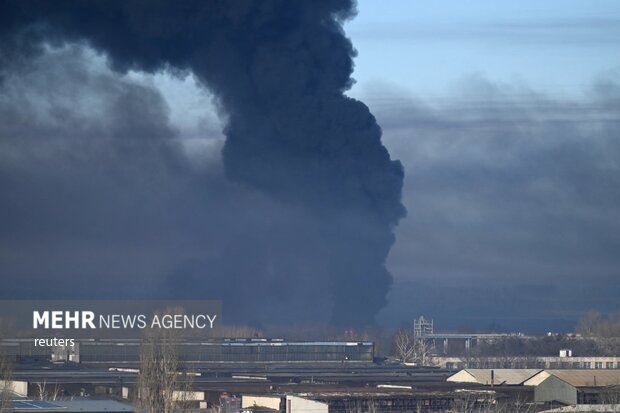
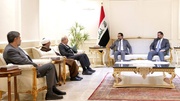

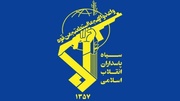
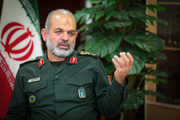
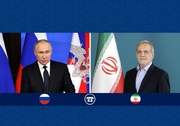
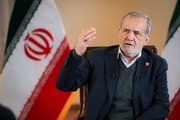

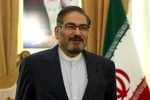
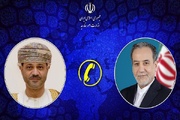
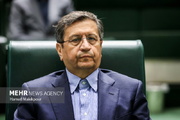
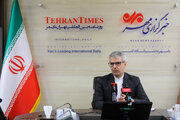




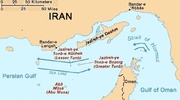



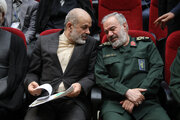
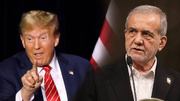


Your Comment